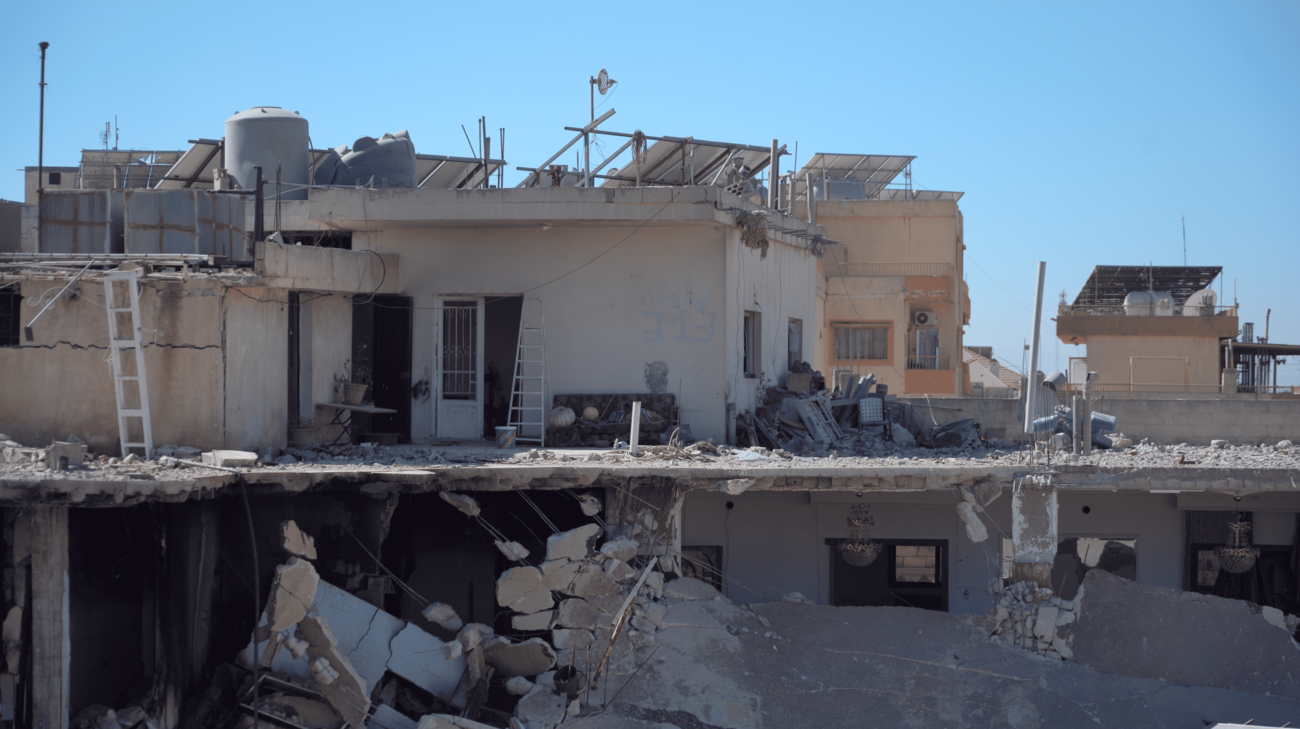A Bottle of Milk and a Silent Heart

I met her during one of the countless check-ins I made with displaced families—women, men, and children forced to flee their homes under the relentless threat of Israeli airstrikes.
She was young, barely in her twenties, married, with a one-year-old child in her arms and another life growing inside her. Seven months pregnant, she fled Baalbeck with only a single milk bottle.
She survived the road. A road where every turn could lead to death, where missiles tore through the silence, and where the weight of war pressed heavily on the chests of those who dared to move. But she made it. She reached a safe shelter in a remote region, far from the destruction but not far from fear.
Days later, I called to check on her. Her voice was barely a whisper, the kind that comes from exhaustion, from grief that suffocates before it allows you to speak. I asked if anything was wrong—a pause. There was silence for so long that I almost thought the call had dropped. Then, finally, she spoke:
I woke up this morning. My husband was lying next to me. But he wasn’t breathing.
He was 32. His heart had stopped in the middle of the night. A heart attack, they said. Maybe from stress, maybe from exhaustion, maybe from carrying the unbearable weight of war. Maybe simply because war takes its toll in ways no one can predict.
Her voice broke when she told me this. She had already lost her home, her safety, and the comfort of familiarity. Now, in the supposed safety of displacement, she had lost the one person who shared her burdens. The father of her child. The man who had held her hand as they fled the bombs.
“If he had died in his bed, I wouldn’t have cared,” she whispered. “If he had died defending his land, maybe I would have found some meaning in it. But his heart just… broke. Like so many others.”
She told me that what she would miss the most was his heartbeat. The steady rhythm that comforted her in the silence of the night. Now, the child she carried had to beat for two.
Grief does not wait for the war to end. It does not pause for ceasefires or negotiations. It does not care for the sanctuaries we attempt to create in the middle of destruction. It arrives uninvited, settles into the bones, and refuses to leave.
I listened as she cried, as she struggled to breathe between her words. There was nothing I could say that would make it better.
War does not just destroy homes. It uproots people, fractures families, and plants fear where certainty once existed.
War doesn’t just kill with bullets and bombs. It kills in the silence of the night, in the weight of loss, in the unbearable grief of those left behind.
Her story is one among thousands. And yet, it is hers alone.
Lebanese-Israeli War 2024.
War is often told through headlines, casualty counts, and sweeping narratives of national loss. Within these generalized accounts, the individual, and especially the woman, usually folds into a collective experience that overlooks her personal suffering, resilience, and survival. This project seeks to break that silence by documenting the voices of displaced women, whose lives were irrevocably changed by war but whose stories rarely find space in public memory.
Through a series of deeply personal testimonies gathered from women in shelters and displacement homes in Lebanon’s underprivileged urban peripheries, particularly in regions like the Bekaa and Baalback, we aim to highlight the layered and often invisible impact of conflict on women. These areas receive minimal attention from the government, and many are underdeveloped, with weak infrastructure making it more difficult to live a dignified life.
The testimonies collected in this project are not just about displacement; they are about motherhood under fire, generational trauma, loss without closure, and strength in the face of abandonment. They reflect how women carry war in their bodies, silences, and quiet acts of endurance. By centering their voices, we challenge the dominant, family-centered narratives of war and bring forward a gendered lens that reveals the intimate and often overlooked dimensions of conflict.
This project is both an act of documentation and of recognition. It insists that women’s experiences during war are not secondary; instead, they are central. Their voices deserve to be heard not as background noise to the chaos, but as the heartbeat of survival itself.